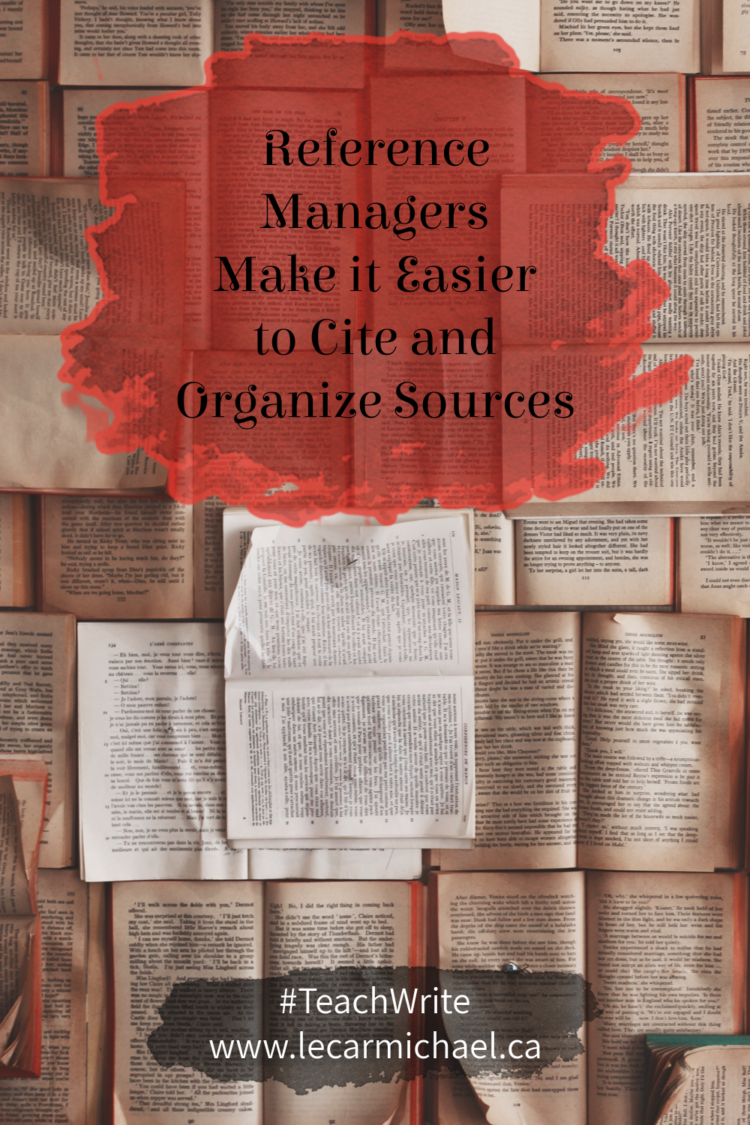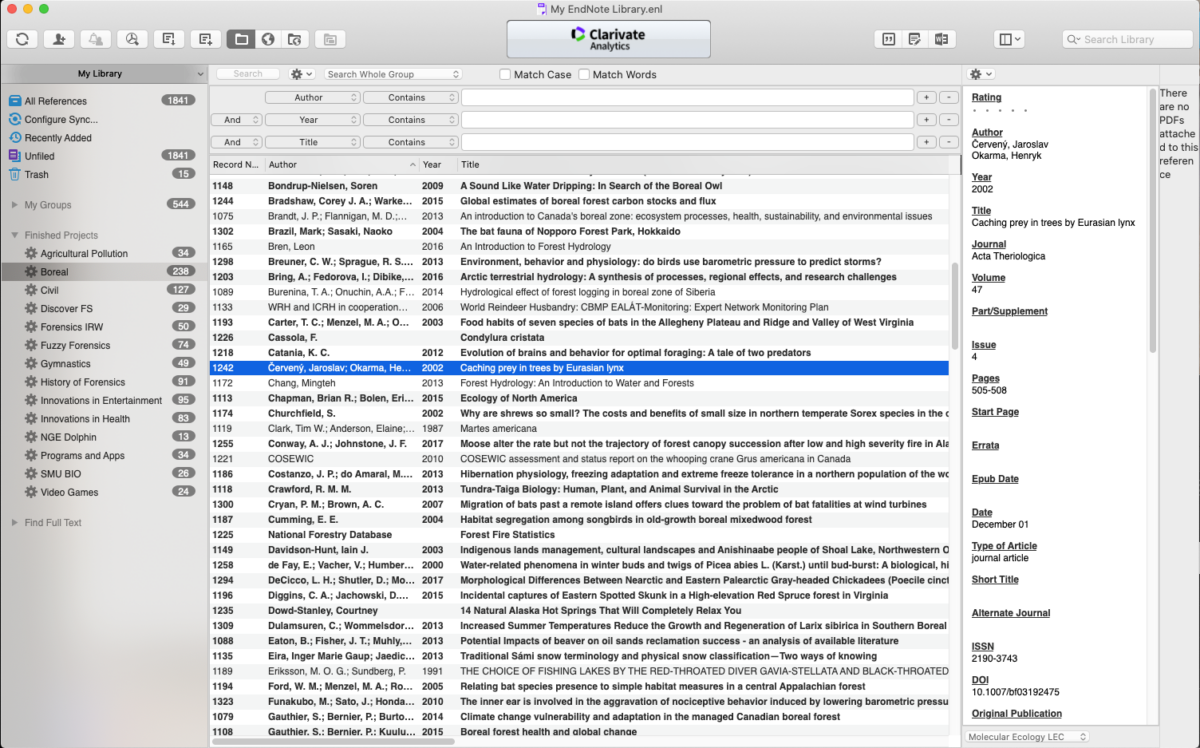 Welcome to Teach Write! This column draws on my 20 years’ experience teaching writing to kids, university students, and adult learners. It includes ideas and exercises that teachers and students can use in the classroom, and creative writers can use to level up their process.
Welcome to Teach Write! This column draws on my 20 years’ experience teaching writing to kids, university students, and adult learners. It includes ideas and exercises that teachers and students can use in the classroom, and creative writers can use to level up their process.
Last time, we talked about note-taking skills, and why it’s important for writers to know where every piece of their information originally came from. Today, I’m going to introduce a tool that makes this process a lot easier: the reference manager.
First things first. Reference managers are apps that… you guessed it, help manage your references. Like all software, there is a learning curve, and you’ll need to decide whether the tool will save you enough time to justify learning how to use it. Are you a high school student? An author of contemporary or realistic fiction? Most likely, you do not need to bother.
If you’re a university student, you need a reference manager, especially if you’re thinking about graduate school. Many university libraries offer free options for students. If you want to purchase your own copy – and if you’re a grad student, you do – there are often discount codes for students.
If you’re a creative writer who focuses on nonfiction or research-heavy genres like speculative or historical fiction, you also need a reference manager. Discount codes are less available for us, but at least the cost of the software is tax deductible.
I’ll talk about a couple of popular programs in a moment, but first, let’s discuss WHY you need a reference manager.
Tracking and Organizing Sources
Reference managers are database programs for tracking and organizing your source material. The first step is to create a record for each one of your research sources. For print books, you can do this manually. If you’re using peer-reviewed articles in your research, there’s an automated option: databases and journal webpages allow you to export citation info, which you can then import into your reference manager with a couple of clicks. Easy peasey!
That’s the tracking part. The organizing part happens in two ways:
- Using keywords to create smart groups of references that are linked to a particular project or subject, for easy scanning and sorting
- The search function, which scans summaries and abstracts as well as titles and keywords, helping you find sources quickly and easily.
Start building your database right away, and add each new source immediately. I didn’t find out about reference managers until I was in my fourth or fifth year of graduate school, and it took me a couple of months, working full time, to get all of my the papers I’d read uploaded. Somehow, I managed to forget that particular torment when I started my new life as an author, and after my ninth or tenth children’s book, when I realized that I needed to be using a manager again, I had to start all over.
There are more than 1800 sources in my author database right now, in case you are curious. Do this as you go. Trust me.
 Citations and Bibliographies
Citations and Bibliographies
Here is the REAL reason you want a reference manager:
Reference managers integrate with word processors like Word and Scrivener (more on that soon). After you’re done writing your paper or manuscript, your reference manager will format your citations and bibliographies automatically. In any citation style you, your instructor, or your editor – wants.
No more frantically wondering whether it’s APA or MLA that requires page numbers, or struggling to reformat the bibliography you did in Chicago when it should have been Turabian. Nope, your BFF the reference manager does that for you.
These tears I’m crying? They are tears of JOY.
There is an important caveat: these apps are not perfect. They are particularly confused by acronyms and by authors that are institutions, rather than people. You might need to tinker with the formatting codes in your particular app, which is tedious, but easy. And you’ll have to proof read, but you should be doing that anyway.
Even so, your life just got much, MUCH easier. You’re welcome.
Popular Programs
I use Endnote. Endnote is designed for academics, so it’s the most expensive option out there – unless you buy it as a student and then pay the lower update fees, which is what I did. I use Endnote because it’s what I’m used to, but also because the cheaper options I tested had a tendency to crash and cause nervous breakdowns the night before deadline.
Sometimes, you really do get what you pay for.
If you’re looking for something simpler and less pricey, RefWorks and Mendeley are the most popular and reliable options among university students. As this Wikipedia entry demonstrates, there are a lot of other options out there, most of which will offer a free trial. Read reviews, try a couple options, avoid anything that feels like it’s going to make your life harder.
And remember – you only have to learn the software once… and you’ll be grateful you did, every single time you use it.
What about you? Any tips or recommendations on reference managers to share?
Hey, did you know I teach writing workshops? It’s true – I work with adult writers, teachers, and students of all ages. Contact me to learn more.